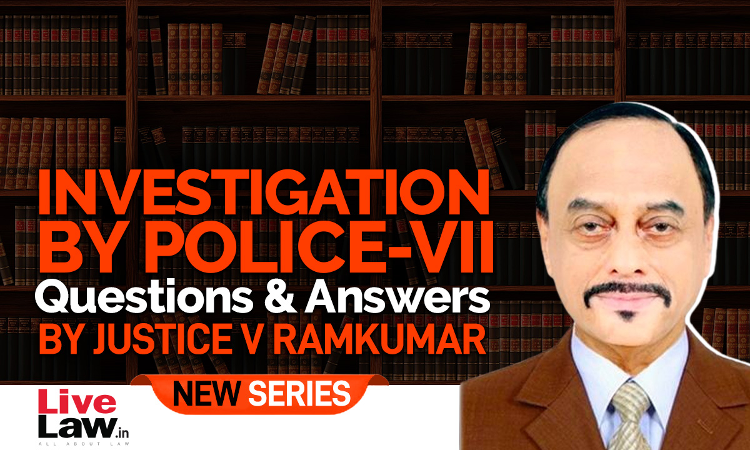Questions & Answers By Justice V. Ramkumar- Investigation By Police-PART VII
Justice V. Ramkumar
21 Nov 2022 12:31 PM IST

Next Story
21 Nov 2022 12:31 PM IST
A1. INVESTIGATION BY THE POLICE – Part VIIQ.31 Should the Magistrate to whom the FIR is forwarded by the SHO under Section 157 Cr.P.C., bound to note the date and time of receipt of the FIR ? Ans. Yes, particularly in heinous crimes like murder etc. (Vide para 8 of Bijoy Singh v. State of Bihar (2002) 9 SCC 147 = AIR 2002 SC 1949 – R. P. Sethi, D. M. Dharmadhikari - JJ).Q.32 ...
